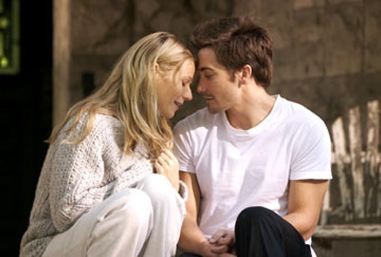Proof of love

Great plays tend to make mediocre movies. The elements that make a play successful don’t always provide the plot and visuals that are the keys to memorable cinema. Complicating matters further is the fact that theater is, by design, dialogue-heavy. The screenwriter who plans to cram long monologues or extended dialogues into the script is doomed.
David Auburn’s play Proof won the Tony Award for Best Play and the Pulitzer Prize for Drama. It was only a matter of time before some brave souls brought it to the screen. That they succeed as well as they do speaks volumes about the power of its theme.
Proof is a four-person story that centers on the relationship between Catherine (Gwyneth Paltrow), a sad, lonely, smart, 27-year-old math student who lives near the University of Chicago, and her father, Robert (Anthony Hopkins), a once-brilliant mathematician whose mental state has deteriorated. Catherine has had to drop out of school to take care of him. Rounding out the quartet are Claire (Hope Davis), Catherine’s older sister, who leads a very nonacademic business life in New York City, and Hal (Jake Gyllenhaal), a talented math grad student who is sweet on Catherine and in awe of her brilliant father.
The proof in question is a long, complex mathematical proof that is locked in Robert’s desk, a proof that answers one of the great math questions of the past hundred years. We initially assume that Robert wrote the proof before he descended into madness. As the story progresses, questions are raised not only about the proof’s authorship but about its symbolic role in the family’s various struggles.
Like Peter Shaffer’s Amadeus, another award-winning play turned into a successful film, Proof is obsessed with genius. Amadeus is about the difference between talent and genius; Proof concerns the fine line between genius and madness.
The film is directed by John Madden (Mrs. Brown), who also directed the stage version in England, where Paltrow played the lead role. His familiarity with the raw emotions of the original play seems especially potent during the angrier scenes, where Hopkins struts his stuff. It is coscripted by playwright Auburn and the filmmaker Rebecca Miller, who brings a cinematic flair and feminist punch to the adaptation, opening the story up to include scenes and locations, mostly involving the sisters, that are only alluded to in the play. (Plus, who would know more about the difficulty of dealing with a brilliant father than the daughter of Arthur Miller?)
Much of the film takes place in the aging family home, where scenes jump back and forth in time and include a few that may or may not be fantasy. Despite the screenwriters’ efforts to give the story breathing room, the film works best when it sticks close to the back-and-forth movement of the play, especially during the scenes in which father and daughter are trying to find common ground—not an easy task, since one is depressed and the other is going mad. (There are moments in the story that suggest King Lear, with the loyal youngest daughter doing what she can to soothe the pain of her ranting father.) In her sadness, Catherine maintains a sharp edge of sarcasm, which saves the film from becoming maudlin.
Davis brings an understated pain and resentment to her role, making us feel the sister’s anguish at being an outsider in her family. Gyllenhaal, despite giving it the old college try as an aging college student, can’t quite turn Hal into much more than a love interest and a messenger who brings key information onscreen.
The film manages to synthesize a family drama and an academic mystery, and end up with a love story. Proof is less about authorship, ambition, talent or even the beauty of mathematics than about the love between a father and daughter, and how finding one’s own way in the world sometimes involves climbing over the grave of the one you can’t bear to leave behind.





